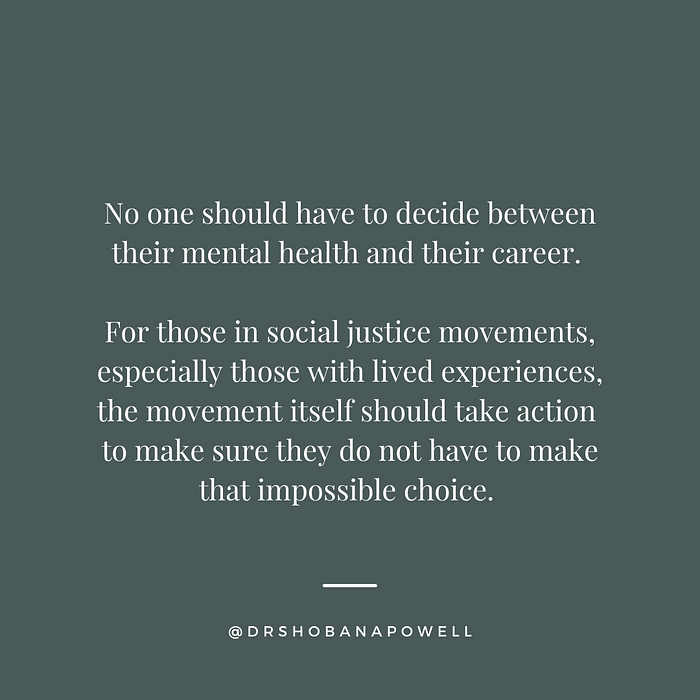Where Does the Expert Go for Support?
Barriers to Therapy for Survivor Leaders in the Anti-Trafficking Movement

The Problem: Barriers to Therapy for Survivor Leaders
Survivors of trafficking often struggle to find accessible, trauma-informed therapy with clinicians who understand trafficking and complex trauma. It is even harder when considering that trafficking disproportionately impacts marginalized communities, communities that lack access to inclusive and affirming therapy. Survivors deserve access to mental health services that understand how racial trauma and oppression based on gender expression, gender identity, sexuality, immigration status, and disability intersect with the trauma of exploitation.
In addition to the challenges of finding therapy that most survivors face, when survivors become Survivor Leaders (those who utilize their lived experience to support and educate others in the anti-trafficking movement), they encounter the additional barriers of conflict of interest, dual relationships, and confidentiality when seeking therapy within the same field in which they work.
Vicarious Trauma & Vicarious Resilience
Whether or not someone has lived experience with exploitation, doing anti-trafficking work can impact an advocate’s life in many ways, resulting in both vicarious trauma and vicarious resilience. Vicarious trauma refers to how bearing witness to others’ trauma can result in personal experiences of trauma symptoms for the advocate, and vicarious resilience refers to how the same bearing witness can also result in personal experiences of growth and healing for the advocate. It is especially important that advocates with their own additional primary trauma have access to safe, confidential, trauma-informed mental health services that hold space for this intersection of primary and vicarious trauma and resilience. In order to create a sustainable work environment for those with lived experience (and anyone who does trauma work), they should have access to comprehensive support services. They are whole, human beings deserving of ongoing healing.
Access and Clinical Ethics
However, due to systemic barriers like access to healthcare, lack of education for therapists on human trafficking, lack of affordable and inclusive therapy, lack of therapy for the ongoing challenges of life after exiting trafficking, stigma towards mental health, and discrimination based on marginalized identities (such as race, culture, spirituality, gender identity, gender expression, language, immigration status, disability, etc.), it is already difficult for survivors to reach out for support. In the rare case that a Survivor Leader not only reaches out for therapy, but also finds a therapist who understands trafficking and systemic oppression, that therapist is usually also in the same anti-trafficking work spaces as the Survivor Leader, but in the role of a colleague. This poses many ethical issues from a clinical perspective, including conflict of interest, dual relationships, and breach of confidentiality as defined below according to the National Association of Social Work Code of Ethics:
1) Conflict of Interest: Conflicting expectations, interests, or roles that “interfere with professional discretion and impartial judgment”
2) Dual Relationships: Clinicians “relating to clients in more than one relationship, whether professional, social, or business”
3) Confidentiality: “All information obtained in the course of professional service must remain confidential”
*Source: National Association of Social Work Code of Ethics.
Please note: The NASW Code of Ethics shares similar principles to other counseling-related organizations’ codes of ethics, including the Association of Marriage and Family Therapy Code of Ethics, the American Counseling Association Ethical and Professional Standards, and the American Psychological Association Code of Conduct.
How can Survivor Leaders find access to therapists who understand trafficking, but are not already a colleague? How can we ensure the therapist is not going to be in the same coalition meetings or in the Survivor Leader’s training as an attendee? How can we ensure the therapist’s supervisor/director will also not be in meetings with the Survivor Leader and know details about their case? Even if a supervisor only knows the Survivor Leader’s initials or has only staffed the case in peer review or group supervision, it would not be hard to connect the dots, and most importantly, it does not feel safe or confidential for the Survivor Leader.
Oftentimes therapists work for or with the same organizations for which a Survivor Leader consults, and their paths cross professionally. It is hard to find support when you fear what you say in therapy could negatively impact your career. Regardless of the intention of the therapist, what matters is the impact on you as the client. What happens when you need to process an interaction with a colleague but that colleague is your therapist’s colleague, too? Where does the expert go for confidential support and therapy when all the experts know each other?
Power Dynamics
What happens when on top of all this, we acknowledge that therapists hold power in their therapeutic relationships, and survivors are folks who have experienced chronic abuse and exploitation of power? What if we acknowledge that advocates in the movement also hold privilege while survivors deal with stigma and oppression due to their lived experiences, not only in society, but also within the movement? When seeking therapy, those power dynamics cannot be ignored. When you do trauma work, but you have real and valid fears that others will judge you for your trauma history, where do you go for support? For all these reasons, it can be challenging to find therapy for anyone in the anti-trafficking movement- or any social justice movement that intersects with mental health- but it is even more challenging for those who have primary trauma and lived experience. It is not only hard for those who identify as Survivor Leaders and have openly disclosed their lived experience, but we cannot forget the often hidden pain and barriers of those with lived experience who choose not to publicly disclose their survivorship. They also deserve support and comprehensive services while their right to self-disclose is respected.
The Need: Intentional, Ethical Mental Health Services for Survivor Leaders
It is imperative that anti-trafficking organizations and clinicians consider these ethical issues and build policies and programs to ensure advocates, survivors and Survivor Leaders have safe, confidential, inclusive spaces for healing and support. Organizations that employ or work with Survivor Leaders should develop benefits packages, referral directories and trauma-informed human resource policies that consider and address these barriers.
Particularly for Survivor Leaders, their anti-trafficking work is often their livelihood. No one should have to decide between their mental health and their career. For those in social justice movements, especially those with lived experiences, the movement itself should take action to make sure they do not have to make that impossible choice.
In my experience supporting Survivor Leaders, advocates, and those with disclosed or undisclosed lived experiences, we try to work together to find a therapist who is in private practice and not involved in community or coalition work so the client does not have to fear this conflict of interest, dual relationship, or confidentiality issue. We look for clinicians who understand that traditional forms of therapy might not resonate with everyone, especially for those in communities that have been historically harmed by systems, including harms by those in the mental health field. We seek clinicians who hold space for and respect the power of nontraditional, cultural, spiritual, and alternative healing modalities. However, realistically, we seek, and we rarely find. Finding someone who fits those criteria and understands trafficking and offers accessible, affordable services that are inclusive for BIPOC and LGBTQ+ folks is not impossible, but it is not easy. There is a clear gap in adequate therapy for Survivor Leaders. Social justice movements — and the anti-trafficking movement in particular- are recognizing the power and impact of survivor-led work and community-led work more and more, yet we are failing to support those with lived experiences so that they can continue to do what they do.
Innovative Solutions in Action: YAMT
This is where organizations like You Are More Than Inc. (YAMT) are meeting this major gap for the anti-trafficking community. YAMT is a survivor-led organization serving BIPOC and LGBTQ+ folks impacted by the sex trade, through a range of holistic services including trauma-informed mental health, financial support for survivors pursuing higher education, and financial literacy and cash grants to support survivor-led small businesses. In addition to their internal, client-facing services, YAMT also created the Nurture Forward Directory, a referral directory of BIPOC and LGBTQ+ inclusive clinicians who have been vetted by a survivor who is a clinician themself. YAMT offers trainings to those outside therapists to ensure they are being educated on human trafficking and how it intersects with racial trauma and the oppression of the LGBTQ+ community, so survivors and Survivor Leaders do not have to spend their sessions trying to educate their own therapists. YAMT does not supervise their outside therapists, so there is no conflict of interest, dual relationship, nor breach of confidentiality. The hope is that Survivor Leaders can trust that their therapeutic space will not intersect with their professional spaces. These services are available for any survivors of commercial sexual exploitation and human trafficking who identify as BIPOC and/or LGBTQ+, including those who are Survivor Leaders. We need more thoughtful, innovative programs like YAMT so those with lived experiences have access to the mental health services they deserve.
If you are a BIPOC and/or LGBTQ+ survivor or Survivor Leader seeking therapy, or if you are a therapist who is interested in applying to join YAMT’s Nurture Forward Directory, check them out here.








